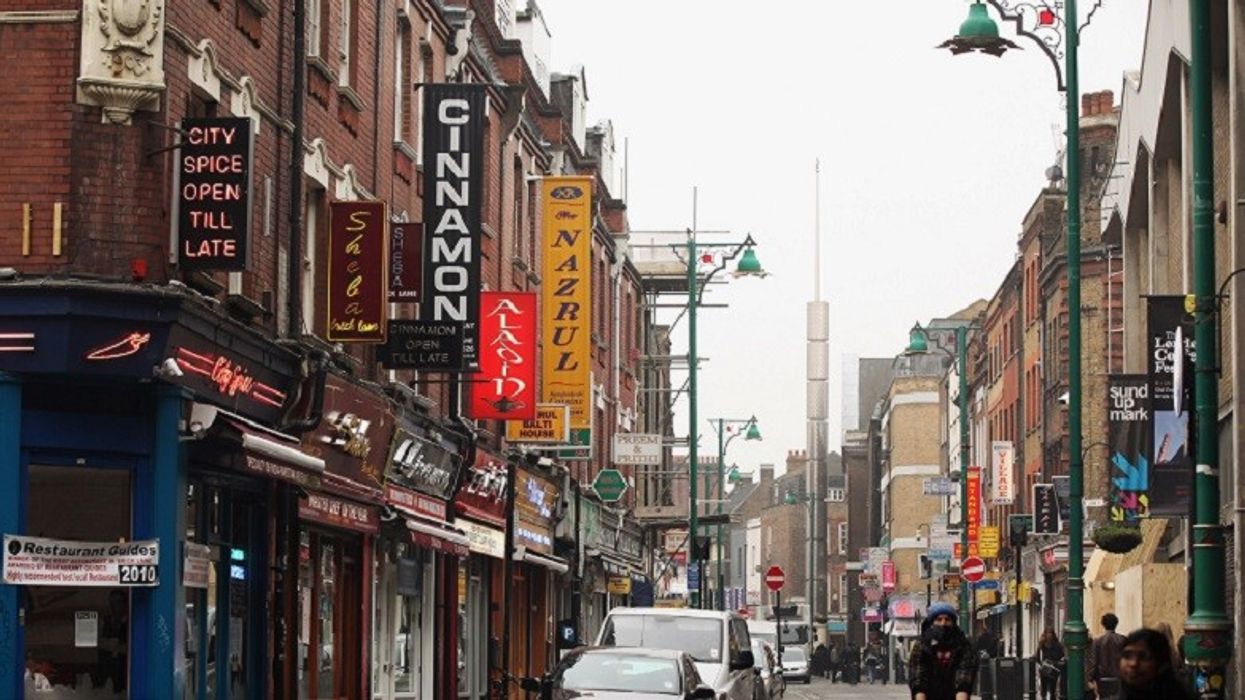By Nadeem Badshah
A FAMOUS curry area in England needs “huge investment” to stop the decline of restaurants and cafes closing, according to business leaders.
The face of Brick Lane has changed in recent years with barbershops, trendy artisan cafes and fried chicken shops replacing many Bangladeshi-owned eateries. A virtual reality Mario Kart-style race park called Chaos Karts is opening on the street in the summer. There were 60 south Asian-owned cafés and restaurants on Brick Lane in east London in 2005 compared with 23 last year.
Experts have blamed rising rents and business rates in the borough of Tower Hamlets along with the Covid crisis for the closure of several eateries.
Syed Belal Ahmed, editor of Curry Life magazine, which has an office near Brick Lane, told Eastern Eye: “There are more barber shops now than restaurants.
“It is the economic impact on London since the banking crash. There used to be a lot of City people eating out before the austerity. The demographic has changed, and business rates and rents are very high; people have no choice but to move out.
“The majority of people don’t own the property in the area, they had a leasehold for their home and business. “It is hard to make money selling curry, you cannot charge a huge margin on your menu.”
Several south Asian eateries have closed, including Shaad Grill and Cafe Naz.
Established restaurant Khushbu have been replaced by a fish and chip shop, while Bengal Cuisine has been replaced by Thai Mihun. But smaller restaurants such as Amar Gaon, Al Badar and Cafe Grill remain open for the lunchtime crowd.
Experts say it is a similar trend in other areas, including Southall in west London and Ilford Lane, Essex, where established restaurants have been replaced by bakeries and cafes selling masala chai.
Ahmed, who runs Indian food festivals around the world, added: “The local council experimented during lockdown. They closed part of the street to allow outdoor seating like Soho. It didn’t go that well.
“There needs to be a huge investment in that area for businesses.
“In the daytime it is completely dead. It is disappointing to see the decline of Brick Lane, similar to that in Southall.
“I don’t blame just the coronavirus.”
Brick Lane attracted an estimated 18,500 pedestrians every day before the Covid crisis.
Pasha Khandaker, from the Bangladesh Caterers Association and a restaurant owner, believes the decline is due to changing eating habits and a lack of parking spaces in the area. He told Eastern Eye: “Curry is quite heavy, people want something lighter at lunch. Corporate lunches are fine with a big budget, but most of the time workers have one hour for lunch and they want something quick to eat.
“The area was closed for months due to roadworks, that has to be stopped. The council also has to keep an eye on touting outside and parking spaces also. You need bright lights and adverts that say Brick Lane has history. The council needs to advertise it for tourists, it was world famous.”
A large overhead banner reads Save Brick Lane in the Shoreditch end of the street, known as Banglatown.
It is part of a campaign opposing an office building and shopping centre, with critics including The Mayor’s Culture at Risk Office and thinktank Runnymede Trust highlighting the impact it would have on Bangladeshi-owned businesses.
Despite receiving more than 7,000 letters of objection, council chiefs recommended the development go ahead and in a report said the building would “respond appropriately to the positive aspects of the local contexts” and create job opportunities.
Humayun Hussain, a food and hospitality consultant, said: “The gradual but sure decline of south Asian restaurants in Brick Lane has been oncoming in recent years.
“Much of it is due to the gentrification of the area with fashionable cafes and restaurants serving eclectic cuisines, chocolatiers and other food establishments, and coupled with a rise in rents in the area, they have been very detrimental to the south Asian restaurant scene.
“Then last year, as the pandemic hit and the lockdown began, restaurants lost customers almost overnight as visitors to the area and the closure of offices – which provided the bulk of the client base to these restaurants – had an immediate and knock-on effect on business.”
Meanwhile, council bosses have proposed banning cars from Brick Lane based on feedback from the local community.
Abdul Karim, owner of Brick Lane Coffee Shop, said: “It’s great to hear this news after so long. “I’ve been waiting for so long to have space outside my shop for customers to sit and enjoy their food. “It’s nice to know we can have that luxury soon to set one or two tables up outside.”
A spokesman for Tower Hamlets council said it continues to work closely with local businesses across the borough to ensure continued support is given.
“We value the contribution of each business and our officers continue to work closely with the Bangla Town Restaurant Association to help support the local businesses within this area,” he said.




